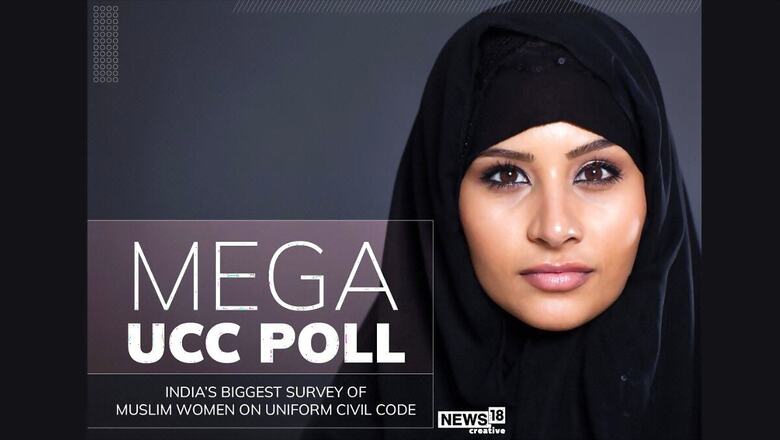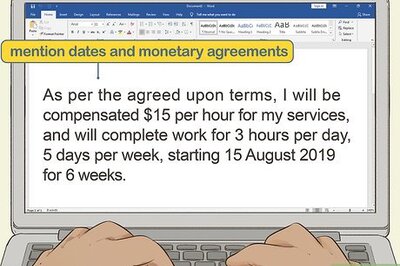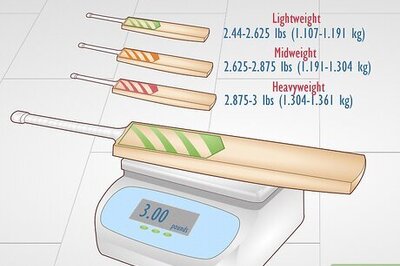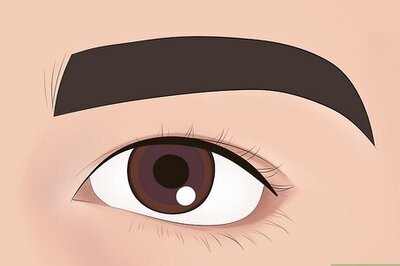
views
Amid the row over the Uniform Civil Code, News18 Network conducted India’s biggest exclusive UCC survey, interviewing 8,035 Muslim women across 25 states and Union Territories in the country, to understand what they think about the issues the UCC is likely to address, rather than the proposed bill as a whole.
The seven key questions asked in this survey did not make any mention of the UCC and were strictly limited to the themes the UCC is likely to cover.
The UCC, in effect, means one law which would be applicable to all religious communities in matters such as marriage, divorce, inheritance, adoption, maintenance, among others. While Prime Minister Narendra Modi recently said India needed a UCC, as the country could not run with the dual system of “separate laws for separate communities”, the Uttarakhand government said its draft with provisions for the age of girls for marriage and conditions for live-in relationships, among others, was ready and would be implemented soon.
WHY MUSLIMS? WHY WOMEN?
The Centre’s recent announcement that the Law Commission would hold consultations on UCC afresh saw severe opposition from Muslim organisations. The All India Muslim Personal Law Board (AIMPLB), in its representation to the Law Commission, said that “majoritarian morality” should not override religious freedom and rights of minority communities in the name of a code.
While the AIMPLB claims to speak for the entire community, the News18 network decided to check if its views were indeed shared by the wider community, especially women, who would be most affected if the status quo were to continue.
CNN-News18 conducts a mega on-ground survey across 25 states with an objective to find out what India's Muslim women think about #UCC. News18's @AnchorAnandN explains the methodology of the survey@Zakka_Jacob explains why the survey was confined to Muslim women#MegaUCCPoll… pic.twitter.com/dqcR7carPV
— News18 (@CNNnews18) July 10, 2023
METHODOLOGY: ON-GROUND, IN PERSON
It was an on-ground survey in which 884 News18 reporters across India collected in-person responses from all major Indian states and Union Territories between July 4 and 8. It was not carried out on any social media platform, but every participant was reached by a reporter.
The 8,035 respondents of the survey were limited to Muslim women across regions, communities, educational and marital status. The survey participants included women aged 18-65+. There was wide representation across the educational spectrum, from the illiterate to the post-graduate.
A professional licensed survey software was used to collect responses to the 16 questions in real-time through a secured mobile interface made available to the on-ground reporters.
To maintain anonymity of responses, it was optional for the respondents to reveal their names. However, 90% gave their names. News18, however, will not reveal any names or identifiable information of any of the respondents to maintain their privacy.
To ensure greater randomness of responses and higher accuracy, each surveyor (reporter) interviewed, on an average, only nine Muslim women.
THE SEVEN KEY QUESTIONS
- Do you support a common law for all Indians for personal matters such as marriage, divorce, adoption and inheritance?
- Do you think Muslim men should have the right to marry up to four women?
- Should all men and all women have equal rights of succession and inheritance of property?
- Should divorced couples be allowed to remarry without any restriction?
- Should adoption be allowed regardless of religion?
- Should all Indians who have attained the age of majority be free to will away their property as they please?
- Do you support 21 years as the legal age of marriage for all men and women?
THE DEMOGRAPHICS
The survey covered the states of Andhra Pradesh, Assam, Bihar, Chandigarh, Chhattisgarh, Delhi, Gujarat, Haryana, Himachal Pradesh, Jammu & Kashmir, Jharkhand, Karnataka, Kerala, Ladakh, Madhya Pradesh, Maharashtra, Odisha, Puducherry, Punjab, Rajasthan, Tamil Nadu, Telangana, Uttarakhand, Uttar Pradesh and West Bengal.
The response languages were Assamese, Bengali, Bodo, English, Gujarati, Hindi, Kannada, Kashmiri, Konkani, Maithili, Malayalam, Manipuri, Marathi, Nepali, Odia, Punjabi, Tamil, Telugu, Urdu, among others.
Of the surveyed women, 18.8% were in the 18-24 age group, 32.9% were aged 25-34, 26.6% were aged 35-44, 14.4% were aged 45-54, 5.4% were aged 55-64 and 1.9% were 65+. While 70.3% were married, 24.1% were unmarried, 2.9% were widowed and 2.9% divorced. A total of 73.1% of the respondents were Sunni, 13.3% Shia and 13.6% others.
Among the women surveyed, 10.8% were post-graduates, 27% graduates, 20.8% had studied up to Class 12+, 13.8% were Class 10+, 12.9% had studied till Class 5-10, 4.4% up to Class 5, 4.2% were illiterate and 4.2% had basic literacy, with 1.9% others.


















Comments
0 comment